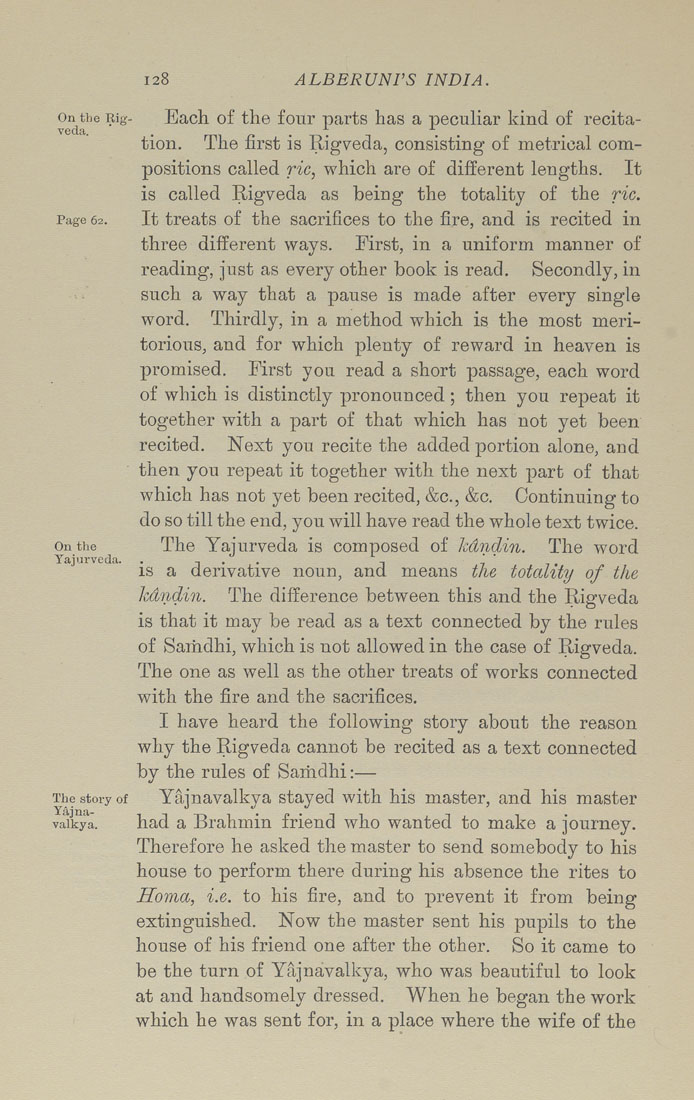Bīrūnī, Muḥammad ibn Aḥmad, Alberuni's India (v. 1)
(London : Kegan Paul, Trench, Trübner & Co., 1910.)
|
||
|
|
|
|
| Page 128 |

128 ALBERUNPS INDIA. On the Rig- Each of the four parts has a peculiar kind of recita¬ tion. The first is Rigveda, consisting of metrical com¬ positions called ric, which are of different lengths. It is called Rigveda as being the totality of the ric. Page 62. It treats of the sacrifices to the fire, and is recited in three different ways. First, in a uniform manner of reading, just as every other book is read. Secondly, in such a way that a pause is made after every single word. Thirdly, in a method which is the most meri¬ torious, and for which plenty of reward in heaven is promised. First you read a short passage, each word of which is distinctly pronounced; then you repeat it together with a part of that which has not yet been recited. Next you recite the added portion alone, and then you repeat it together with the next part of that which has not yet been recited, &c., &c. Continuing to do so till the end, you will have read the whole text twice. Onthe The Yajurveda is composed of kdndin. The word Yajurveda. . -, . . , 77. is a derivative noun, and means the totality of the kdridin. The difference between this and the Rigveda is that it may be read as a text connected by the rules of Saihdhi, which is not allowed in the case of Rigveda. The one as well as the other treats of works connected with the fire and the sacrifices. I have heard the following story about the reason why the Rigveda cannot be recited as a text connected by the rules of Saihdhi:— The story of Yajuavalkya stayed with his master, and his master vaikya. had a Brahmin friend who wanted to make a journey. Therefore he asked the master to send somebody to his house to perform there during his absence the rites to Homa, i.e. to his fire, and to prevent it from being extinguished. Now the master sent his pupils to the house of his friend one after the other. So it came to be the turn of Yajuavalkya, who was beautiful to look at and handsomely dressed. When he began the work which he was sent for, in a place where the wife of the |
| Page 128 |







